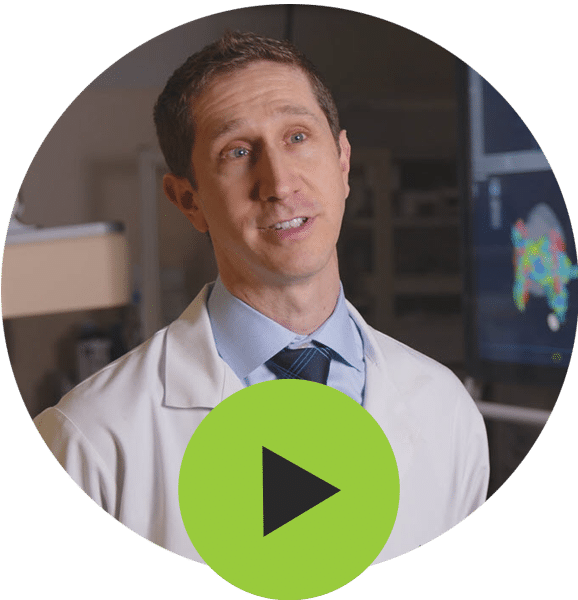TREATMENT
 Understanding Heart Failure Treatment Options
Understanding Heart Failure Treatment Options
Providers sometimes can correct heart failure by treating the underlying cause. For example, repairing a heart valve or controlling a fast heart rhythm may reverse heart failure. But for most patients, heart failure is a chronic disease needing lifelong management. Nowadays, with appropriate treatment, signs and symptoms of heart failure can improve, and the heart can sometimes even regain strength. For many patients, the treatment of heart failure involves a balance of being prescribed the right medications, but now the use of devices that help the heart contract properly and beat more regularly are available as well.
In the early stages of heart failure, providers will make treatment decisions based on symptoms. If you are a patient that does not experience any symptoms during typical physical activity, your treatment may consist of lifestyle changes and monitoring alone.
As time goes on, and depending on your symptoms, you might begin taking one or more medications designed to ward off symptoms. These drugs help people with heart failure live longer and feel better but these therapies lose effectiveness as the disease progressively gets worse.
Typical medications used to treat heart failure include:
- Angiotensin Receptor Neprilysin Inhibitors (ARNI)
- Angiotensin-converting enzyme (ACE) inhibitors
- Angiotensin II receptor blockers
- Beta blockers
- Diuretics
- Aldosterone antagonists
- Inotropes
- Digoxin
“Some treatments are able to improve heart function and some patients’ heart function gets better, but unfortunately over time even those patients can drift back downward again. And there’s a significant number of patients who don’t respond to that therapy where the heart function does not improve despite the best efforts, despite the optimal medical therapy, despite the newest medications, and some people remain very symptomatic.”
Medical Devices for Moderate to Severe Heart Failure
Once medications lose effectiveness and symptoms begin to reappear, you may experience declining quality of life. At this point your provider may consider a device called Optimizer® Smart Mini that is designed to improve contraction of the heart, allowing more oxygen-rich blood to reach the body. The Optimizer® Smart Mini system delivers Cardiac Contractility Modulation therapy which is a new therapeutic approach that improves quality of life for patients that are no longer adequately responding to medications intended to manage symptoms or slow the progression of heart failure. Extensive studies evaluating the FDA-approved therapy, and over 7,000 patients already living with Optimizer® Smart Mini (and predecessor) devices have demonstrated the device is safe and is proven to improve quality of life for suitable patients.
The Optimizer Smart Mini device is similar in size to a pacemaker and is implanted during a minimally invasive procedure while the patient is under light sedation. During the procedure, the device is implanted under the skin of the upper chest, along with electrical leads that are placed in the heart’s right ventricle through the veins. After the procedure, the physician programs the delivery of CCM® therapy for each patient and activates the device. The implanted device then sends precisely calibrated and timed electrical pulses to the heart muscle during one-hour treatment periods scheduled intermittently throughout the day.
From the comfort of their home, the patient charges the device each week for one hour using an external charger. The Optimizer Smart Mini has been rigorously tested and it is expected to provide CCM® therapy for up to 20 years before requiring replacement.
If you and your provider determine that you are one of the 70% of NYHA Class III patients who remain symptomatic despite guideline-directed medical therapy, CCM® therapy may be an appropriate treatment option for you. Use the physician locator here to find a physician trained in all aspects of CCM® care and set an appointment for evaluation.
As heart failure progresses, cardiac rhythm management devices may be used to resynchronize the heart or to reverse potentially fatal disturbances known as arrhythmic events. While these devices can save your life, they often fail to provide significant symptom relief, and are reserved for patients with specific conditions. Most patients with heart failure are not indicated for these devices.
Medical Devices for Severe or Advanced Stage Heart Failure
In the most advanced stages of heart failure, in some cases, doctors recommend surgery to treat the disease. Heart Transplant & Ventricular Assist Devices are included in this category. These therapies are often a last option for patients with the most severe forms of heart failure.
Patient animations (2:22)


